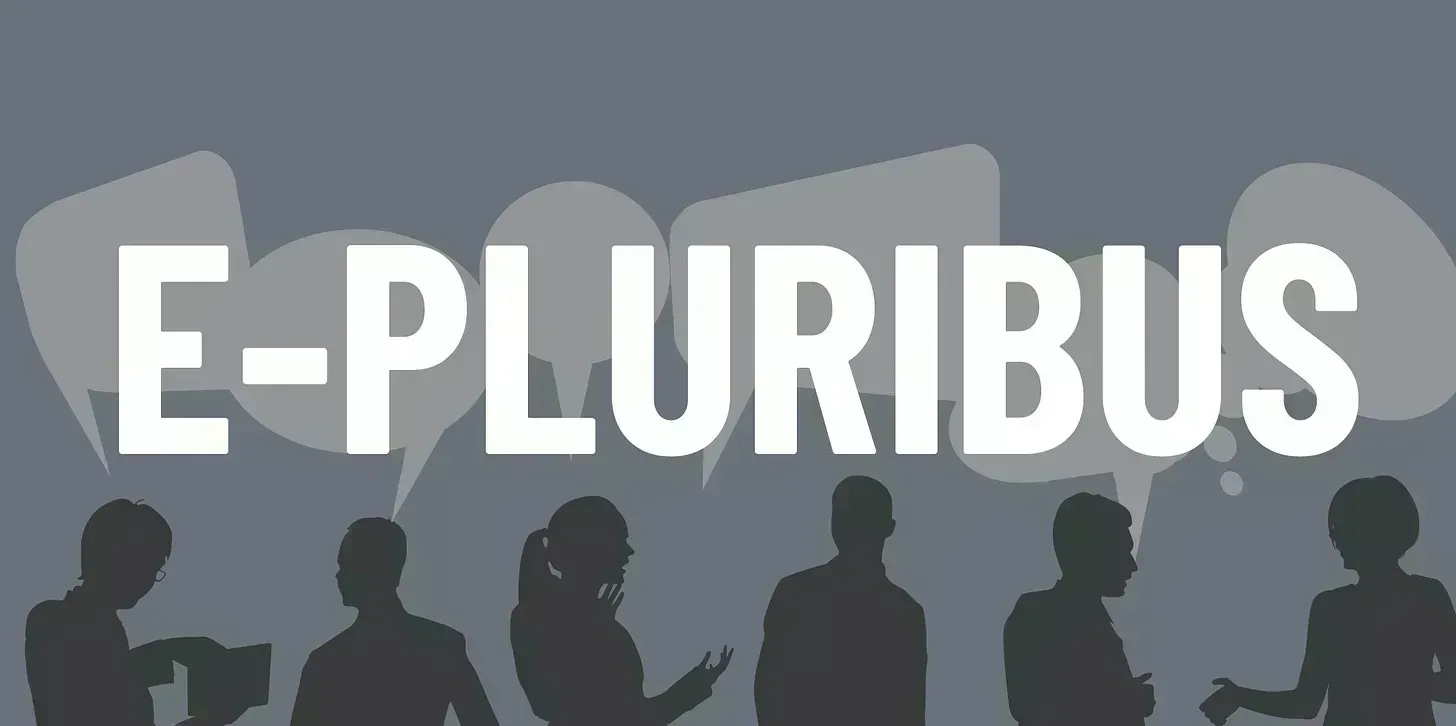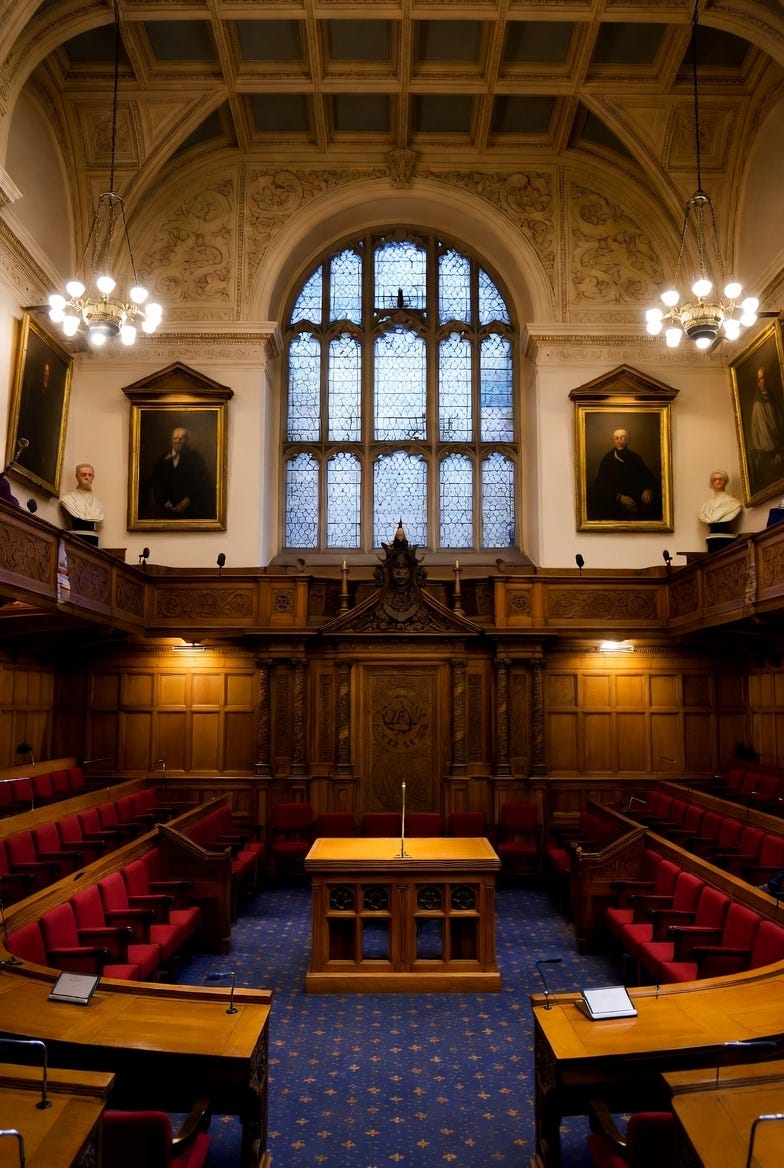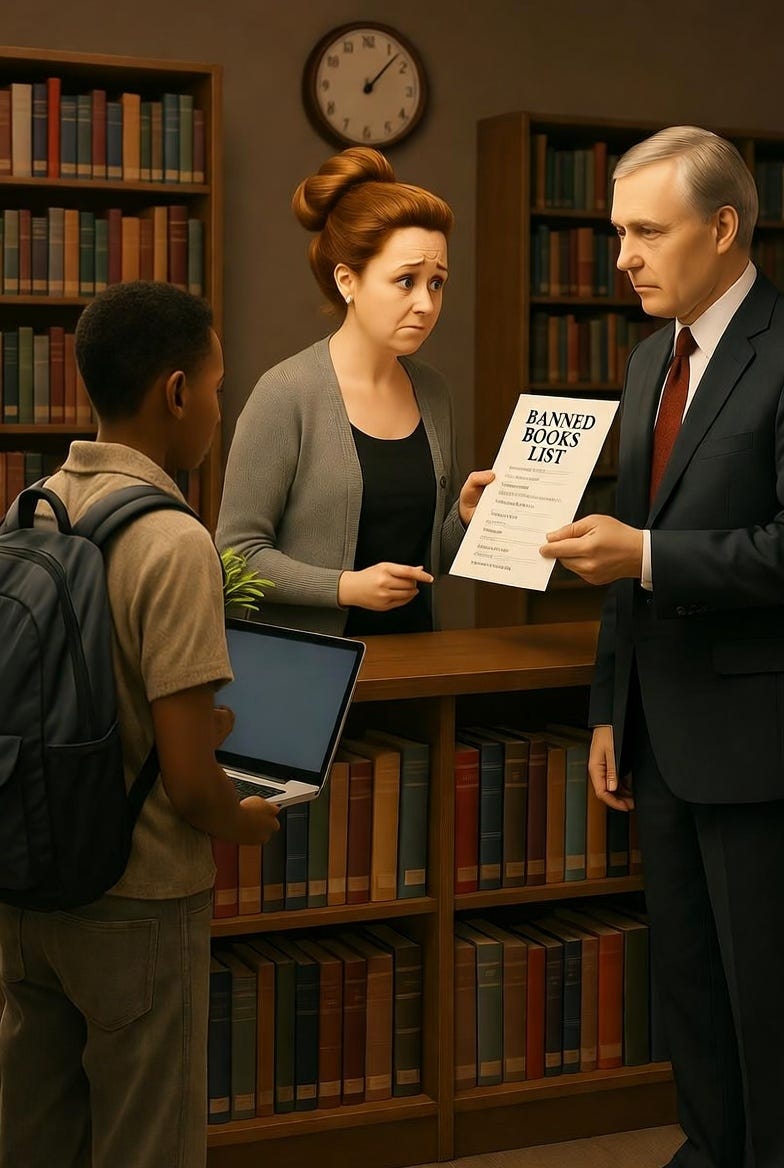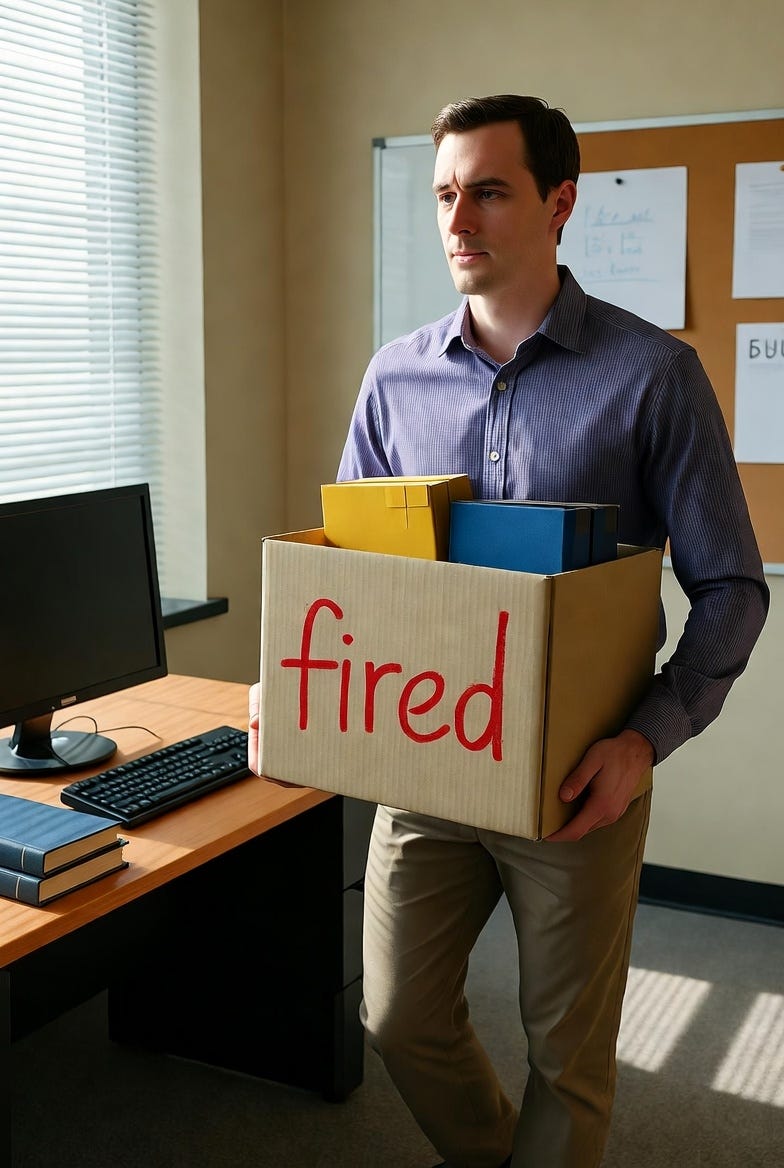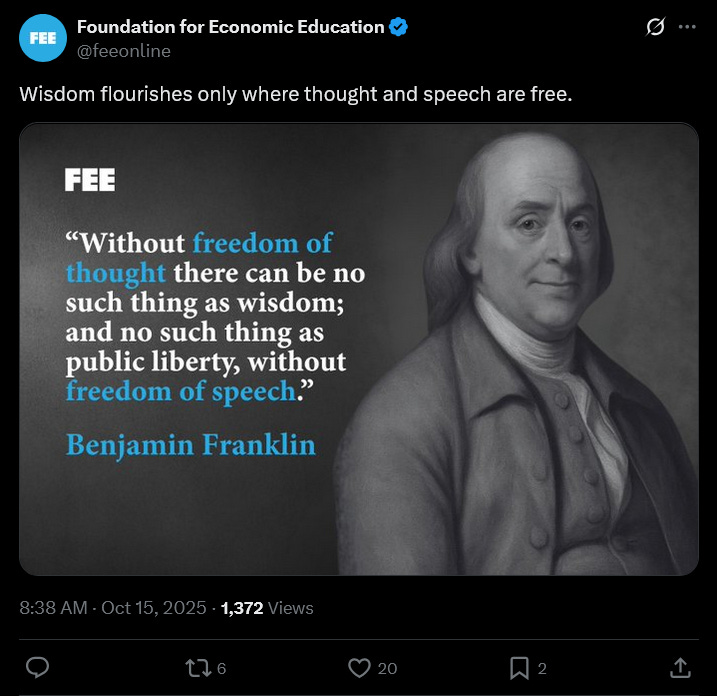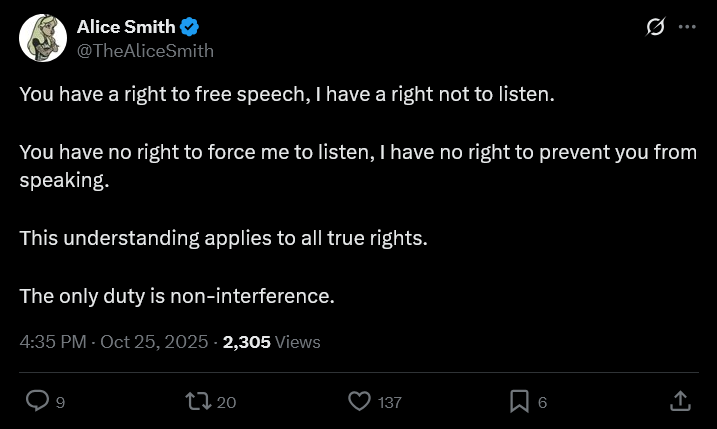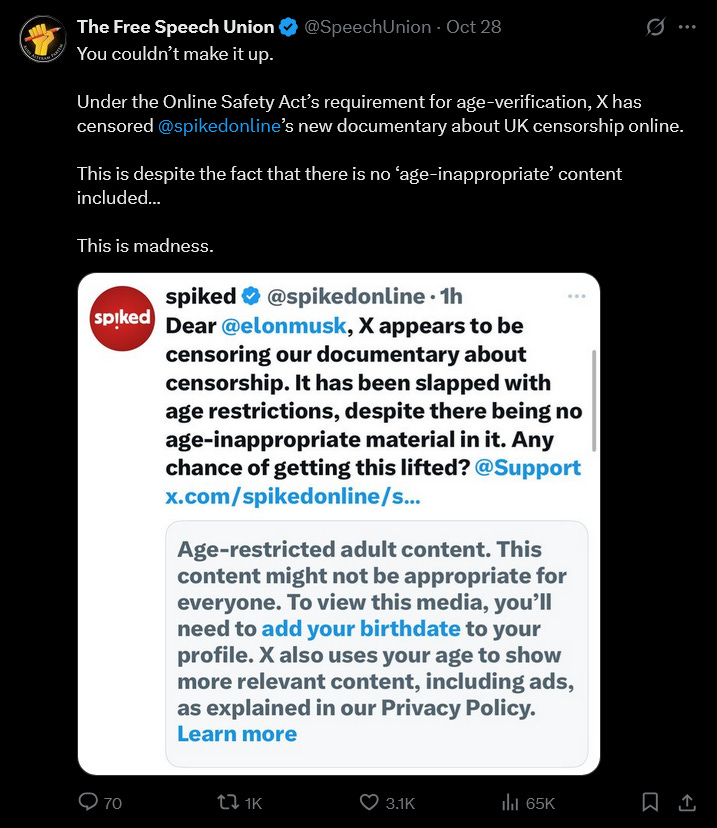E-Pluribus |October 29, 2025
Open debate changes hearts and minds. Texas can't compel speech from book vendors. Colleges still censoring professors.
A round-up of the latest and best insight on the rise of illiberalism in the public discourse:
Daniel J Flynn: What Oxford Union’s Ousted President-Elect Could Learn from Frank Meyer
At City Journal, Daniel Flynn underscores the power of free speech to change minds with the example of communist-turned-conservative icon Frank Meyer. Though knee-deep in Marxism through early adulthood, Meyer began questioning his convictions after witnessing the terror of Stalin’s regime. There’s a lesson for us today in his experience:
The obvious parallels between the campus extremists in Britain of the 2020s with those of the 1930s are that both claimed to support peace even as they cheered violence, both defended their own free-speech rights as they worked to strip them from others, and both refused to recognize elections that did not go their way.
But a deeper lesson can be drawn—and Charlie Kirk may have understood this better than anyone—that points to the human capacity for change. Frank Meyer acted in an even more obnoxious manner during the 1930s at Oxford than George Abaraonye does now. Yet he eventually asked the bravest question: What if I’m wrong?
By 1949, he was serving as a star witness in, to that point, the longest, most expensive trial in U.S. history, which sent 11 former comrades to prison for Smith Act violations. He helped found the American Conservative Union, the Conservative Party of New York, and the Philadelphia Society. His book, In Defense of Freedom, served as a canonical text for the postwar right. Joan Didion credited him, when he was National Review’s literary editor, as the first to take a chance on her freelance work.
Kirk debated Abaraonye and thousands of other students who not only disagreed with him but despised him. He did so because he believed in the power of persuasion. Epiphanies happen. Second thoughts birth second acts.
Kirk’s Christianity dictated that he treat others as he would be treated. The political animal in Kirk understood that behaving humanely toward ideological adversaries makes it easier for them to embrace your position.
Brian Doherty: Texas Can’t Force Book Vendors To Rate Books According to Sexual Content, District Court Decides
A federal judge has ruled that Texas violated the speech rights of booksellers by requiring them to rate sexually explicit titles before selling them to public schools. The broader legal fight will probably continue; the ruling acknowledges that states have a legitimate interest in keeping obscene materials (like this) out of classrooms. But as Brian Doherty reports for Reason, Texas can’t compel speech from book vendors:
In a moral panic over allegedly damagingly filthy content in books that schoolchildren could access, Texas passed a law in 2023 known as the Restricting Explicit and Adult-Designated Educational Resources (READER) Act. Aspects of the law that compelled certain behaviors from vendors who sold books into the school system were overturned last week in a decision in Book People v. Wong from U.S. District Court for the Western District of Texas Judge Alan D. Albright.
The law’s purpose, as the decision summarized it, was “to regulate access to school library books deemed ‘sexually explicit’” (which were to be barred entirely) “or ‘sexually relevant’” (which were to require parental consent).
Albright found elements of the law plainly unconstitutional because they required booksellers who sold to Texas schools to “categorize any books they sell or have ever sold to schools” and to “issue a recall for any ‘sexually explicit’ materials that they sold to schools.”
The Texas Education Agency (TEA) would “oversee the ratings, which includes the power to overrule a vendor’s rating,” and by law, “booksellers who do not comply with the rating system (or the overruled ratings)…[could] not sell any books at any of the schools.”
A group of plaintiffs—including a Texas bookstore, the American Booksellers Association, and the Comic Book Legal Defense Fund—sued over the law in July 2023. Last week, the court granted their motion for summary judgment against those aspects of the READER Act that directly affected them.
Under READER, the booksellers would have to decide what material should be labeled “sexually explicit” or “sexually relevant,” which included determining whether the work was “so offensive on its face as to affront current community standards of decency.”
TEA’s power to overrule the booksellers’ ratings meant that the state agency had, as Albright put it, the “power to substitute its own speech for a vendor’s…the vendors must forego their own determinations and allow the TEA to exercise its unilateral rating authority….To do business with public schools, vendors must accept that the TEA is allowed to publish its own determination as the vendor’s own. Vendors have no mechanism to appeal the TEA’s determination. They must simply accept the substituted speech, or lose their ability to sell library materials to public schools.”
FIRE: Colleagues and faculty unions fail to defend scholars targeted for speech
The Foundation for Individual Rights and Expression (FIRE) just published its latest Sanctioned Scholars survey, and the results are, well, disheartening. Over the last four years, hundreds of professors have been censured—and some even fired—for saying things their universities didn’t like:
“I was afraid to leave my home for several weeks. I was afraid for the safety of my children. I received death threats.”
“I was vomiting throughout the day, couldn’t eat, was having constant panic attacks, couldn’t be around people or leave the house . . .”
“I was getting violent threats via email every day . . . The police were doing daily drive-bys because so many people threatened me with violence.”
These are just some of the harrowing first-person accounts collected by the Foundation for Individual Rights and Expression in “Sanctioned Scholars: The Price of Speaking Freely in Today’s Academy,” a new survey of scholars who have been targeted for protected speech since the beginning of the decade.
“Cancellation campaigns are often wrapped in the language of preventing ‘emotional harm,’” said FIRE’s Manager of Polling and Analytics Nathan Honeycutt. “But our survey shows that it’s the mobs themselves that inflict lasting mental anguish on academics, many of whom still suffer the consequences long after the controversy subsided.”
FIRE reached out to the over 600 academics listed in its Scholars Under Fire database who were sanctioned or targeted between 2020 and 2024, of whom 209 completed our survey. (FIRE’s survey was conducted before the Sept. 10 assassination of Charlie Kirk, which was followed by nearly a hundred scholars being targeted, over a dozen fired, and 2025 emerging as a new record high.)
Nearly all (94%) who participated in the survey described the impact of their experience as negative. Roughly two-thirds (65%) experienced emotional distress, and significant chunks reported facing harrowing social setbacks, such as being shunned at work (40%) or losing professional relationships (47%) and friendships (33%).
For some, the consequences were severe. About a quarter of the scholars who completed the survey reported that they sought psychological counseling (27%), and 1 in 5 lost their jobs entirely (20%).
Around X
Wise words from one of America’s most prominent founders, via the Foundation for Economic Education.
Ben Franklin was spot on, of course, though we like Alice Smith’s important addendum: you can say what you like, but that doesn’t mean anyone has to listen to you.
On balance, X has been a helpful ally in the battle to protect free speech. But Elon appears to have fumbled the ball in this instance:



